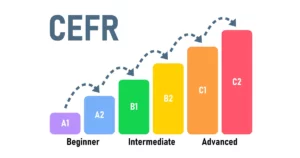
Những từ tiếng Anh khó đánh vần và phát âm nhất
January 30, 2024 | 10-min. Read
Ngôn ngữ tiếng Anh có sự đa dạng đáng kinh ngạc của các từ phức tạp. Bạn đã bao giờ gặp phải những từ tiếng Anh khó khi đọc sách giáo khoa hoặc lướt internet chưa? Những từ đó khá tuyệt vời nhưng không dễ đánh vần và phát âm phải không?
Nếu bạn là người mới bắt đầu học tiếng Anh, bạn không quá quen thuộc với một số từ tiếng Anh mà một số người học ở trình độ trung cấp và cao cấp biết. Có rất nhiều từ tiếng Anh khó nhất trong từ điển mà đôi khi chúng ta không biết là có tồn tại. Vì chúng còn mới đối với chúng ta nên chúng ta coi chúng là “những con thú” trong việc học ngôn ngữ của mình. Những từ này là những sinh vật bí ẩn có khả năng khiến bạn méo miệng và rối não.
Bạn có phải là người học có tính cạnh tranh muốn mở rộng và sử dụng các từ vựng nâng cao hơn không? Bạn là người học đang chuẩn bị cho kỳ thi tiếng Anh quốc tế như IELTS hay Toeic? Bạn có tò mò về những từ tiếng Anh khó nhất trong từ điển không? Đừng lo lắng, chúng tôi sẽ giúp bạn.
Trong bài viết này, chúng ta sẽ khám phá thế giới của những từ tiếng Anh khó đánh vần, phát âm và thậm chí là biết ý nghĩa của chúng. Chúng tôi cũng sẽ cung cấp cho bạn các câu mẫu để bạn tham khảo.
Những từ tiếng Anh khó đánh vần và phát âm nhất
Trong phần này, bạn sắp đọc một số từ tiếng Anh khó nhất, khó đánh vần và phát âm nếu bạn không quen với chúng. Định nghĩa của những từ này được lấy và tham khảo từ Từ điển Cambridge.
WORD | TRANSCRIPTION | PART OF SPEECH | MEANING | EXAMPLE |
| Aqueous | US /ˈeɪ.kwi.əs/ | adjective | In Chemistry, it means made with or containing water. | The chemists have been trying to mix aqueous chemicals in their experiments. |
| Aitch | US /eɪtʃ/ UK /eɪtʃ/ | noun | This is the letter “h” when written as a word. | Some students cannot write the letter aitch correctly in their dictations. |
| Anachronism | US /əˈnæk.rə.nɪ.zəm/ UK /əˈnæk.rə.nɪ.zəm/ | noun | Something that belongs to the past or a period in history. | The movie received multiple awards for setting the plot in an era filled with anachronisms. |
| Anesthetist | US /əˈnes.θə.t̬ɪst/ UK /əˈniːs.θə.tɪst/ | noun | A person who was trained to give anesthesia to patients; an anesthesiologist. | I was worried that the new anesthetist would fail to inject the anesthesia into my dad. |
| Arcane | US /ɑːrˈkeɪn/ UK /ɑːˈkeɪn/ | adjective | someone or something mysterious that only a few people know | The nun who came out of the convent seems arcane. |
| Beguile | US /bɪˈɡaɪl/ UK /bɪˈɡaɪl/ | verb | to attract or persuade someone to deceive them | Scammers beguile innocent people. |
| Bramble | US /ˈbræm.bəl/ UK /ˈbræm.bəl/ | noun | wild bush with thorns | Be careful in the forest; there are brambles out there. |
| Byzantine | US /ˈbɪz.ən.tiːn/ /bɪˈzæn.taɪn/ UK /bɪˈzæn.taɪn/ /ˈbɪz.ən.tiːn/ | adjective | complicated and difficult to understand | Many people react to the new byzantine government mandate. |
| Charcuterie | US /ʃɑːrˈkuː.t̬ər.i/ UK /ʃɑːˈkuː.tər.i/ | noun | ■ cold meat that is preserved or cooked ■ a store that sells preserved or cooked cold meat | ■ My friend likes to order a charcuterie. ■ The new charcuterie near our house has a lot of customers. |
| Chauvinism | US /ˈʃoʊ.və.nɪ.zəm/ UK /ˈʃəʊ.vɪ.nɪ.zəm/ | noun | a strong belief that your country or race is the best | Chauvinism does not have a positive result to international relations. |
| Chiaroscuro | US /kiˌɑːr.əˈskjʊr.oʊ/ UK /kiˌɑː.rəˈskʊə.rəʊ/ | noun | the use of areas of light and darkness in a painting | Leonardo Da Vinci is one of the famous painters who used chiaroscuro in his artworks. |
| Consanguineous | US /ˌkɑːn.sæŋˈɡwɪn.i.əs/ UK /ˌkɒn.sæŋˈɡwɪn.i.əs/ | adjective | people connected by blood relations | Consanguineous marriages are acceptable in some cultures. |
| Curmudgeon | US /kɚˈmʌdʒ.ən/ UK /kəˈmʌdʒ.ən/ | noun | an old person who is always in a bad mood | The young lady took care of her old curmudgeon for more than a decade. |
| Debauch | US /dɪˈbɑːtʃ/ UK /dɪˈbɔːtʃ/ | verb | to destroy something that is no longer valuable for use or no longer considered good | My dad debauched our tree house because it was already old. |
| Demagogue | US /ˈdem.ə.ɡɑːɡ/ UK /ˈdem.ə.ɡɒɡ/ | noun | a person, particularly a politician, who wins the support of people by emotions rather than words or morally right ideas | The rich demagogue did not win in the elections for the second time around. |
| Diaphanous | US /daɪˈæf.ən.əs/ UK /daɪˈæf.ən.əs/ | adjective | a substance, such as a cloth, that is so thin that you can see through it | She wore a diaphanous robe during the pageant. |
| Diatribe | US /ˈdaɪ.ə.traɪb/ UK /ˈdaɪ.ə.traɪb/ | noun | an angry speech that criticizes someone or something | The radio announcer was killed because he made a diatribe during his program. |
| Emollient | US /ɪˈmɑː.li.ənt/ UK /ɪˈmɒl.i.ənt/ | ■ noun ■ adjective | ■ a cream that treats dry or sore skin to make it less painful ■ helps in treating dry, sore skin | ■ Please buy me an emollient at the pharmacy. ■ The emollient cream that I put in my dry skin was effective. |
| Equanimity | US /ˌek.wəˈnɪm.ə.t̬i/ UK /ˌek.wəˈnɪm.ə.ti/ | noun | the state of being in a calm mental state despite being in a difficult situation | My mom is still struggling for equanimity after my dad’s passing. |
| Fatuous | US /ˈfætʃ.u.əs/ UK /ˈfætʃ.u.əs/ | adjective | something is done without careful thinking | Make sure you’re not going to do such a fatuous thing. |
| Faux pas | US /ˌfoʊ ˈpɑː/ UK /ˌfəʊ ˈpɑː/ | noun | behavior that is not polite and causes embarrassment esp. in public | The serious faux pas that he made inside the mall caused great depression in the young woman. |
| Foliage | US /ˈfoʊ.li.ɪdʒ/ UK /ˈfəʊ.li.ɪdʒ/ | noun | the leaves of a plant or tree | I like seeing the foliage of my mom’s flowers in the garden. |
| Gaffe | US /ɡæf/ UK /ɡæf/ | noun | an impolite social mistake that causes embarrassment; faux pas | The woman was tormented when she heard about the gaffe that the other woman did to her. |
| Garrulous | US /ˈɡer.əl.əs/ UK /ˈɡær.əl.əs/ | adjective | the habit of talking too much esp. about unimportant things | A garrulous woman sometimes loses friends. |
| Grandiloquent | US /ɡrænˈdɪl.ə.kwənt/ UK /ɡrænˈdɪl.ə.kwənt/ | adjective | a style or way of using a language that is complicated to get the attention of people esp. to make something important | My father didn’t like the grandiloquent speech of the mayor so he went out of the gymnasium. |
| Hegemony | US /hɪˈdʒem.ə.ni/ /ˈhedʒ.ə.moʊ.ni/ UK /hɪˈɡem.ə.ni/ /hɪˈdʒem.ə.ni/ /ˈheɡ.ɪ.mə.ni/ /ˈhedʒ.ɪ.mə.ni/ | noun | in politics, it is the position that holds the strongest power and is able to control others | Hegemony is common in some Korean Drama plots. |
| Heresy | US /ˈher.ə.si/ UK /ˈher.ə.si/ | noun | an opinion or belief that opposes the official belief or opinion esp. in church or religion | Many members of the cult did not want heresy within their community. |
| Iconoclast | US /aɪˈkɑː.nə.klæst/ UK /aɪˈkɒn.ə.klæst/ | noun | a person who strongly opposes the general beliefs and traditions | Sometimes, I want to be an iconoclast. |
| Ignominious | US /ˌɪɡ.nəˈmɪn.i.əs/ UK /ˌɪɡ.nəˈmɪn.i.əs/ | adjective | a behavior or event that is embarrassing because of a failure | The ignominious behavior of the CEO’s son caused a decline in the company’s stocks. |
| Impedimenta | US /ɪmˌped.ɪˈmen.tə/ UK /ɪmˌped.ɪˈmen.tə/ | noun | objects or things that are hard or difficult to carry to an event or activity | My colleagues were worried that their impedimenta would be left at the office because there is no available truck. |
| Inchoate | US /ɪnˈkoʊ.eɪt/ UK /ɪnˈkəʊ.eɪt/ | adjective | not completely formed or developed | My friend had a miscarriage because of an inchoate fetus inside her womb. |
| Indefatigable | US /ˌɪn.dɪˈfæt̬.ɪ.ɡə.bəl/ UK /ˌɪn.dɪˈfæt.ɪ.ɡə.bəl/ | adjective | can’t accept defeat; always energetic and does not feel tired | Working too much cannot guarantee an indefatigable feeling. |
| Invective | US /ɪnˈvek.tɪv/ UK /ɪnˈvek.tɪv/ | noun | rude or unkind criticism | Our president is an invective but he stands strong. |
| labyrinthine | US /ˌlæb.əˈrɪn.θaɪn/ UK /ˌlæb.əˈrɪn.θaɪn/ | adjective | describing something that has a lot of parts and is confusing | The human body is labyrinthine. |
| Lackadaisical | US /ˌlæk.əˈdeɪ.zɪ.kəl/ UK /ˌlæk.əˈdeɪ.zɪ.kəl/ | adjective | lacking enthusiasm and effort | The trainees look lackadaisical on their 10th day of training. |
| Licentious | US /laɪˈsen.ʃəs/ UK /laɪˈsen.ʃəs/ | adjective | sexual behaviour of a person that is socially unacceptable | There is a law for licentious acts in my country. |
| Maelstrom | US /ˈmeɪl.strəm/ UK /ˈmeɪl.strɒm/ | noun | a situation where there is violence, argument, and destruction | People in some parts of the world were shocked because of the sudden maelstrom in Israel. |
| Martinet | US /ˌmɑːr.t̬ənˈet/ UK /ˌmɑː.tɪˈnet/ | noun | someone who insists on obeying the rules and orders even if those are unnecessary | One of the reasons why some employees resign is because of the martinet in the administration. |
| Minuscule | US /ˈmɪn.ə.skjuːl/ UK /ˈmɪn.ə.skjuːl/ | adjective | extremely small | I was very impressed with the minuscule miniatures in the exhibit. |
| Misogynist | US /mɪˈsɑː.dʒən.ɪst/ UK /mɪˈsɒdʒ.ən.ɪst/ | noun | a man who hates women and believes that they are better than women | He is a misogynist who does not deserve an appreciation. |
| Noisome | US /ˈnɔɪ.səm/ UK /ˈnɔɪ.səm/ | adjective | very unpleasant and offensive | Your noisome words affected my sister’s mental health. |
| Nonplussed | US /ˌnɑːnˈplʌst/ UK /ˌnɒnˈplʌst/ | adjective | shocked, surprised, and doesn’t know how to react | Her fiance proposed to her and she was nonplussed. |
| Obdurate | US /ˈɑːb.dʊr.ɪt/ UK /ˈɒb.dʒə.rət/ | adjective | describing a person who does not change their mind no matter what people say or advise | She knew she wouldn’t win the pageant but she was so obdurate. |
| Pejorative | US /pɪˈdʒɔːr.ə.t̬ɪv/ UK /pɪˈdʒɒr.ə.tɪv/ | adjective | suggesting that something is not good or important | Don’t give me pejorative suggestions; I need a more concrete one. |
| Peremptory | US /pəˈremp.tɚ.i/ UK /pəˈremp.tər.i/ | adjective | expecting immediate obedience, or obeying without explanation | The little boy’s mom was peremptory to him at the wedding. |
| Phlegmatic | US /fleɡˈmæt̬.ɪk/ UK /fleɡˈmæt.ɪk/ | adjective | does not easily feel excited about something; having less emotions | A phlegmatic friend is boring to be with. |
| Pillory | US /ˈpɪl.ɚ.i/ UK /ˈpɪl.ər.i/ | verb | severely criticize someone in public | It is not good to see a homeless man being pilloried in the streets. |
| Prevaricate | US /prɪˈver.ə.keɪt/ UK /prɪˈvær.ɪ.keɪt/ | verb | avoiding telling the truth or saying what is in your mind | I know you are prevaricating about the incident, but take note this is not tolerable. |
| Puerile | US /ˈpjuː.ɚ.ɪl/ UK /ˈpjʊə.raɪl/ | adjective | behaving in a silly way, not like an adult | BitNa’s role in the movie is to be puerile at all times. |
| Puissant | US /ˈpwiː.sɑ̃t / /ˈpjuː.ɪ.sənt/ UK /ˈpwiː.sɑ̃t / /ˈpjuː.ɪ.sənt/ | adjective | very strong, powerful, and effective | A good government needs a puissant leader. |
| Pulchritudinous | US /ˌpʌl.krəˈtuː.dən.əs/ UK /ˌpʌl.krɪˈtʃuː.dɪ.nəs/ | adjective | beautiful | I think Angelina Jolie is pulchritudinous; she’s drop-dead gorgeous. |
| Quiche | US /kiːʃ/ UK /kiːʃ/ | noun | an open pastry case, filled with a mixture of eggs, cream, and other savory (= not sweet) foods, that is baked and eaten hot or cold | The strawberry quiche in my favorite cake shop is affordable. |
| Quisling | US /ˈkwɪz.lɪŋ/ UK /ˈkwɪz.lɪŋ/ | noun | a person who helps an enemy that has taken control of his country | Some quislings were considered traitors by the government. |
| Quixotic | US /kwɪkˈsɑː.t̬ɪk/ UK /kwɪkˈsɒt.ɪk/ | adjective | having admirable intentions or ideas but are not practical | The plaintiff thought that his lawyer was quite quixotic. |
| Rendezvous | US /ˈrɑːn.deɪ.vuː/ UK /ˈrɒn.deɪ.vuː/ | noun | a place where people often meet and gather by arrangement; an arrangement to meet | I need a secret rendezvous to unwind and relax. |
| Restaurateur | US /ˌres.tɚ.əˈtɝː/ UK /ˌres.tər.əˈtɜːr/ | noun | a person who owns and manages a restaurant | My fiance is a famous restaurateur in the country. |
| Sanguine | US /ˈsæŋ.ɡwɪn/ UK /ˈsæŋ.ɡwɪn/ | adjective | positive and hoping for good things for someone’s character | Her grandmother always had sanguine thoughts about her condition. |
| Schadenfreude | US /ˈʃɑː.dənˌfrɔɪ.də/ UK /ˈʃɑː.dənˌfrɔɪ.də/ | noun | a feeling of pleasure for someone’s misfortune | This schadenfreude in me is inevitable. |
| Surfeit | US /ˈsɝː.fɪt/ UK /ˈsɜː.fɪt/ | noun | an amount that is too large, or is more than is needed | The charity for children received a surfeit of money from the donors. |
| Surreptitious | US /ˌsɝː.əpˈtɪʃ.əs/ UK /ˌsʌr.əpˈtɪʃ.əs/ | adjective | done secretly without anyone knowing | The thief has surreptitious techniques in stealing the diamonds from the jewelry store. |
| Sybarite | US /ˈsɪb.ə.raɪt/ UK /ˈsɪb.ər.aɪt/ | noun | a person who loves luxury or expensive things and pleasure | Being sybarite does not determine someone’s success in life. |
| Truculent | US /ˈtrʌk.jə.lənt/ UK /ˈtrʌk.jə.lənt/ | adjective | unpleasant and likes to argue a lot | Our neighbor’s son is truculent; it’s annoying. |
| Ubiquitous | US /juːˈbɪk.wə.t̬əs/ UK /juːˈbɪk.wɪ.təs/ | adjective | something that is seen everywhere | We went to a place where bags of trash are ubiquitous. |
| Vicissitudes | US /vɪˈsɪs.ə.tuːdz/ UK /vɪˈsɪs.ɪ.tʃuːdz/ | noun | changes that happen at different times in someone’s life and usually result to something worse | The death of a family member and the break-up are just vicissitudes of a person’s life. |
| Zephyr | US /ˈzef.ɚ/ UK /ˈzef.ər/ | noun | a light wind | I could feel the zephyr that entered my small window last night. |
Bạn có thấy rối não và méo miệng khi đọc những từ đó không? Tất nhiên, không phải trận chiến nào có từ khó đều thắng. Bạn chỉ cần tự tin và ghi nhớ những lời đó. Điều này thực sự có thể cải thiện kỹ năng từ vựng nâng cao của bạn. Hãy nhớ rằng, những từ khó nhất thường mang lại nhiều lợi ích nhất
Từ Tiếng Anh dài nhất
Bạn có biết rằng một số từ trong tiếng Anh có hơn 10 chữ cái? Hoàn toàn đồng ý! Hãy tưởng tượng bạn đang viết một bài luận với số lượng từ hạn chế và bạn phải sử dụng một số từ dài nhất bằng tiếng Anh. Nó không đáng kinh ngạc sao?
Trong phần này, chúng tôi đã liệt kê 5 từ tiếng Anh dài nhất có thể khiến bạn kinh ngạc. Xem ngay dưới đây:
- Antidisestablishmentarianism – an oppose to the idea that there should be no relationship between the nation and the church.
- Floccinaucinihilipilification – the act of estimating that something is not useful or not important.
- Hippopotomonstrosesquippedaliophobia – this means the fear of long words.
- Pneumonoultramicroscopicsilicovolcanoconiosis – this is the longest word in English and is named for a severe lung disease.
- Supercalifragilisticexpialidocious – extremely good.
Thực sự rất khó để đánh vần và phát âm những từ tiếng Anh dài nhất và khó nhất. Bạn không thể dễ dàng ghi nhớ cách đánh vần của một từ chỉ trong nháy mắt hoặc phát âm chính xác từ đó chỉ bằng một lần phát âm. Phải mất rất nhiều nỗ lực và thực hành.
Hãy lưu ý rằng ngôn ngữ tiếng Anh luôn thay đổi. Nó liên tục phát triển. Các từ mới được thêm vào các thuật ngữ tiếng Anh mỗi ngày. Vì vậy, lần tới khi bạn gặp phải một số từ tiếng Anh khó này, đừng sợ hãi hay né tránh. Tìm hiểu nó và quyết tâm chinh phục.
Cách dễ dàng ghi nhớ những từ tiếng Anh khó nhất
Chinh phục những từ tiếng Anh khó nhất không nhất thiết phải là một công việc khó khăn thông qua từ điển. Học những từ tiếng Anh khó nhất thật thú vị và đầy thử thách. Bạn có thể sáng tạo nhất có thể..
- Read the word three times.
- Write the word so you can easily remember the letters.
- Imagine the word you wrote by not looking at it.
- To check the pronunciation, record yourself and listen to the sound in the dictionary.
- Write the synonyms (if applicable) for better understanding.
- Practice writing sentences. Use a grammar checker tool if possible.
- Save the word in your vocabulary bank.
- Read it every day.
- Practice the pronunciation of the word.
- Make a quiz for yourself.


Phần kết
Học những từ tiếng Anh khó nhất giống như chinh phục trận chiến khó khăn nhất trên hành trình học ngôn ngữ của chúng ta. Nó có vẻ giống như một nhiệm vụ khó khăn, nhưng nó dẫn chúng ta đến việc khám phá bản thân và đánh giá cao ngôn ngữ. Nếu làm quen với những từ tiếng Anh khó nhất, chúng ta sẽ quý trọng tiếng Anh hơn.
Bây giờ, từ nào trong bài viết này thực sự thu hút sự chú ý của bạn? Chia sẻ với chúng tôi suy nghĩ của bạn.




